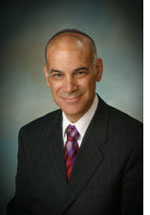By Rabbi Leonard Rosenthal

SAN DIEGO — I had a teacher once who said that it is forbidden for Jews to eat treif (non-kosher food), but if you are going to eat treif, it should melt in your mouth!
His words of wisdom came to mind as I reviewed this week’s parasha, Ki Tissa, which contains the story of the Golden Calf.
While Moses was up on Mt. Sinai receiving the Ten Commandments, the Israelites grew restless. They turned to Aaron and demanded a new leader to take Moses’ place: “Come, make us a god who shall go before us, for that man Moses, who brought us from the land of Egypt-we do not know what has happened to him.” (Ex. 32:1)
God took note of the Israelites’ idolatry and said to Moses, “Hurry down, for your people, whom you brought out of the land of Egypt, have acted basely…They have made themselves a molten calf and bowed low to it and sacrificed to it, saying: ‘This is your god, O Israel, who brought you out of the land of Egypt!'” (Ex. 32:7-8)
The Torah continues, “As soon as Moses came near the camp and saw the calf and the dancing, he became enraged; and he hurled the tablets from his hands and shattered them at the foot of the mountain.” (Ex. 32:19)
Moses’ breaking of the Tablets raises an interesting question (or at least the opportunity for an interesting midrash!).
Why did Moses act so rashly when he saw the Israelites? After all, not only were the Tablets the word of God, and to be handled with care, but he also knew what the Israelites were up to in the camp. God had warned him in advance. What caused Moses to lose his otherwise heroic self control and smash the tablets?
Rabbi Ovadia Sforno proposes an answer. When Moses first heard of the Israelites’ sin, he had defended the Israelites. Moses believed that the Israelites had built the Golden Calf out of fear and desperation. Moses thought that Israelites must have felt abandoned, and as a last resort, they fashioned the Golden Calf to bring themselves comfort and succor. Moses took pity on their suffering and asked God to forgive, rather than punish them.
However, when Moses came down the mountain he did not find a frightened and fearful people gathered around the calf as their last hope or protection. Rather, when Moses came down, he saw that the people had “sat down to eat and drink, and then rose to dance.” (Ex. 34:6).
In other words, the people not only had committed a sin, they were reveling in it! They were celebrating their apostasy. Moses, having given them the benefit of the doubt, was not only disappointed but outraged. He lost his self-control and hurled the Tablets to the ground.
On more than one occasion I have had Jews approach me and regale me with their antireligious exploits:
“Rabbi, I had the most delicious lobster last night! Oops, sorry. I know you can’t eat it.”
“Rabbi, I went to the game on Friday night and it was terrific! Did you see it? Oops, sorry. I know you were at services.”
“Rabbi, sorry I won’t be at Rosh Hashana services this year. Since I close my store for the holidays, we’ve decided to fly to Disney World instead.” (Yes, this really did happen!)
I am never sure how I am to respond. I usually remain silent with a blank expression on my face, but I often feel like “breaking the tablets.” I know that not every Jew lives an observant life, but to bring it blatantly to my attention seems to be mocking and disparaging our tradition.
On the other hand, it is possible that some of these comments are motivated by guilt rather than by joy. Perhaps the people who bring these “non-Kosher” comments to me do not quite feel right about their antireligious behavior. Perhaps they think that they, too, should be more religiously observant, and their comments come from discomfort with their lives.
And that would be okay with me!
*
Rabbi Rosenthal is spiritual leader of Tifereth Israel Synagogue in San Diego. He may be contacted at leonard.rosenthal@sdjewishworld.com